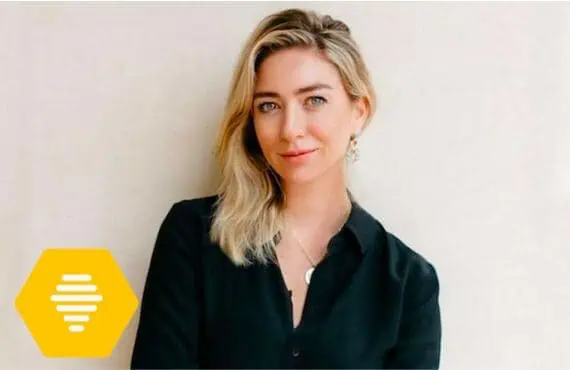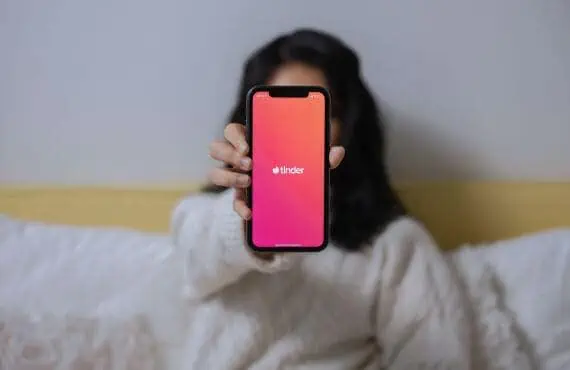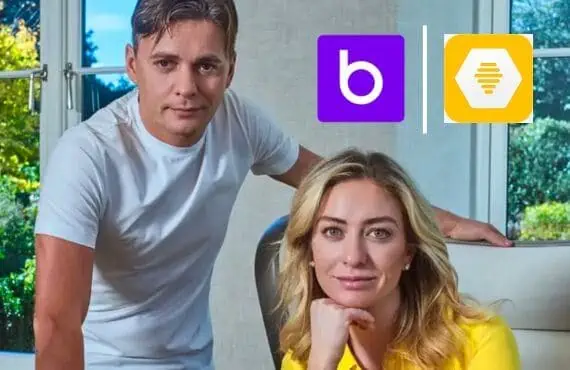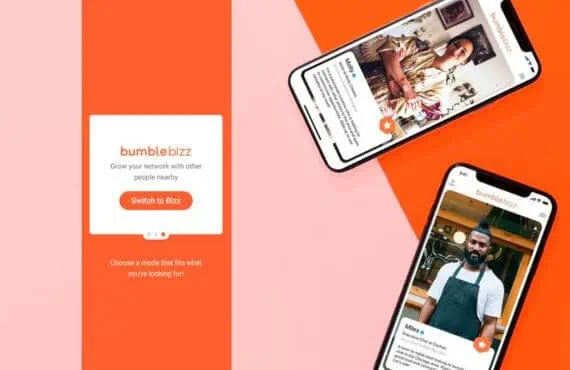It’s no secret that the dating world needed a bit of a revolution in the past few years. With all the male-forward thinking and the patriarchy becoming a huge player in the romance world recently, women needed a place to feel safe while they experimented in their dating lives.
And while society as a whole has begun to make a few great steps toward making women feel seen and valued in the aspect of dating, we still have miles to go until there is true equality between men and women in the world of dating.
But that’s not to say that the world of dating nor the treatment of women within that world is all bad. There are pockets of peace that can be found all over the dating world where women are allowed to be the strong and powerful beings that they were created to be. And one of those places full of peace and empowerment for women is a dating app.
While one might think that the competitive and fast-paced nature that pervades dating apps might be one of the most toxic places for women to go, the world of dating apps and the powerful and empowered women who are behind them have started to change their ways and provide safe spaces for women to feel like they can explore their love and their options freely without being harassed or made to feel little.
Whitney Wolf Herd saw that there was a need in the dating app market for a women-led and run dating app that was truly built for women, and she filled that need.
Herd saw that women weren’t being treated well online, and she also saw why that was. Whitney Wolfe Herd was actually on the team that created Tinder.
After going through a fair amount of abuse, sexism, and terror in her own life, given out by her boss at Tinder, who happened to be her boyfriend, Herd knew that there needed to be a change in the online dating world, and she knew that she could make that change.
And that’s when the idea for one of the most successful and inclusive dating apps that are available to this day was born.

Bumble was created to fill a need that women desperately needed to be filled. The dating app created a safe and wonderful place for women to be able to hold the reins of their lives and love lives and know that they were incredibly capable of doing so.
The creative team at Bumble approached the idea of what online dating could be from a female-forward and female-empowering point of view, and that angle made all of the difference in how successful and wonderful the app is today.
If you want to learn more about the amazing origin story of Bumble, keep reading.
First Comes Tinder
When dating apps first hit the market, they were a huge red flag for women. They were not well monitored, there were too many people on all of the apps who were trying to get the same thing, and they were a hotbed for abusive language and actions.
This is still the case today, over ten years after these apps have launched. And if you’re not sure about whether that’s true or not, ask a woman if they feel respected every time they log onto their dating apps.

One of the first dating apps that started a trend of making women seem less than or voiceless was Tinder.
While it might not make perfect sense at first glance why a dating app caused so much hostility, it all boils down to the fact that Tinder was unstructured, and there was no real point of order on the app. Instead, everyone in its huge user base saw getting a match and making a connection online as a competition, so they became aggressive and rude in order to stand out.
And, for the most part, the people who were sending the first messages on Tinder were men, as that’s how it usually goes on dating apps.
While they certainly did not handle their dating app situation in the best way whatsoever, it does make sense why Tinder’s users did and still do feel the need to be aggressive.
Nearly everyone who has tried some form of online dating has started or ended with Tinder. That means that everyone who’s on the app and messaging people knows that they’re up against the world. While that doesn’t excuse anyone’s behavior, nor does it excuse the app that is supposed to protect its users from this sort of harassment, it does help the situation make more sense.
The app, just like today’s society, has a number of improvements and adjustments that it needs to make before it’s perfect, and one of those needs to be taking a look at how they run Tinder’s operations and how the dating app functions.
But instead, one employee chose to listen to what the women on Tinder were saying about the app and their treatment of it. She took their world and their messages to heart and created a dating app empire that centers around women.
Then Comes Bumble
After undergoing over two years of abuse at Tinder’s headquarters, Whitney Wolfe Herd decided to pack her bags and leave the company that she helped create.
She wanted to be a voice for the voiceless at Tinder and let the millions of women who were messaging her about the terrible messages and comments they were constantly getting bombarded with know that their complaints weren’t falling on deaf ears.
And as Herd was one of the main creators of the app, she believed that her voice mattered on the team. But instead, she was on the receiving end of her own battle to prove that she had a voice.
In 2014, Herd left Tinder and promptly filed a lawsuit against Justin Matten, her boss and former boyfriend. In the lawsuit, she claims that she was subjected to “Sexist, racist, and otherwise inappropriate comments, emails, and text messages.” Tinder promptly settled the suit and fired Justin Matten.
While this idea didn’t exactly pan out, Herd would soon see an app that she created whose sole intention was to create friendships, not romance. But she had to go through a few more steps before that became her reality.
Andrey Andreev, the Russian billionaire and founder of Badoo, sought out Herd and started working with her to create the much-needed dating app that is now Bumble.
Andreev worked with Herd to sharpen her vision and helped her make the app that she wanted, one that put women in control and prioritized their safety and experience on the app, but one that also was going to be successful and reach a large audience that wasn’t just women.
Andreev believed in the app so much that he invested $10 million into the startup company for a 70% stake. He also let Herd use Badoo’s software so that she would know how to get Bumble off the ground.
Wolfe Herd launched Bumble less than a year after she left Tinder, and now her app has launched her to the top of her career and created a safe and empowering environment for women to feel excited about love again.

The app has received over 100,000 downloads, and Match.com, the company that owns Tinder, has even offered to buy it from her for $1 billion. Wolfe Herd won’t give it up, but instead, she constantly seeks to make sure that her app is the best that it can be.
Bumble is constantly growing, improving, and generally solidifying its place as the best dating app that’s currently on the market.
Whitney Wolfe Herd has dedicated her life and her company to giving women a voice when it comes to their dating app platform, and she has done so flawlessly.
If you’re wondering what some of the ways Bumble is able to stand out from the crowd and why it’s one of the most reliable and female-forward dating apps that are out there right now, keep reading!
Bumble Is Constantly Getting Upgraded, and Monitors Are Always on the App
If you’re on Bumble and you get a message from someone named Whitney Wolfe Herd, you’re probably not getting pranked. After her experience with Tinder, Wolfe Herd knew that if she wanted to create an app with a great reputation and get customer service, she wasn’t allowed to just create it and let it run wild and free.

Instead, she and her team at Bumble are constantly using the app, making sure that everything works well online, and messaging the users to see if there’s anything that they need to improve on from their end.
Whitney Wolfe Herd knows that no one knows the app and understands it quite like the people who are using it every single day, so she’ll often log on and talk to those people just to see if there’s anything that her team should try to change about how the app is performing.
She doesn’t want to stay stagnant, and she doesn’t want her app to just be another sign of the times. Instead, Wolfe Herd knows that technology and the world of online dating are constantly changing and making improvements to the way that things are run and done, and she wants Bumble to reflect those changes.
Whitney Wolfe Herd didn’t create Bumble to be a dating app that blended in with the others or that copied and pasted the way that things were done and run online. Instead, she saw a need and a gaping hole in how dating apps were operating, and she knew that with a ton of hard work and dedication, she could create a dating app that would revolutionize online dating once and for all.
Bumble Is the Only App Where Women Have to Message First
Although this might be a hit or a miss when you’re in the trenches of online dating and you know that if you don’t message someone that you’ve matched within 24 hours, they will disappear, this is actually the best feature that Bumble has created.
While it’s no excuse, the reason so many people were so fervently aggressive on apps like Tinder was that they wanted to be able to stand out from the crowd, and they knew that they were going to be pitted against all of the other users who were also trying to stand out.
Whitney Wolfe Herd knew that, and as she was researching and forming a plan for what her new app would look like, she wanted to irradicate any chance of that aggressive nature being a staple on Bumble’s messages.
What Wofle Herd chose to do was simultaneously a solution to a huge problem and a way to show women that Bumble was the app for them.
Wolfe Herd knew that women needed an online platform where they felt empowered to make decisions and not be overwhelmed by hundreds of messages at any given moment. So she created an app that honored the women’s decision.
When you match with someone on Bumble, the woman in the relationship is then given 24 hours to decide whether or not she wants to pursue something with any of her matches.
The matches are shown at the top of her messages, and she can scroll through them and make a final decision about whether or not she wants to start a conversation with them. Once she sends a message, the man can message back, and that can be the start of a new relationship.
But Wolfe Herd knew that women wouldn’t necessarily be as aggressive as men were in their first messages, as she did the proper amount of research surrounding this topic. She also knew that by women letting the men in their messages know that they were already interested in them, that would bring the male aggression rate down a bit too.

Of course, Bumble also caters to all of the members of the LGBTQ+ community. If the couple is the same sex, this rule is waived.
Not to mention, Bumble’s radical females-message-first way of doing things had never been done before, and it was absolutely the revolution the world of dating apps needed.
Bumble Fights for the Voiceless
Bumble has become an empire in the few years that the app has been on the market. Whitney Wolfe Herd has been dedicated to making sure that her app is one of the most advanced and all-encompassing dating apps that are available right now.

She had a vision for a women-only and complement-only platform, so she created Bumble BFF as a way to spur female friendships and friendships of all sorts.
She also used the platform and large reach of Bumble’s platform and worked to create Bumble Bizz, a section of Bumble where users could log on and make connections with successful people in their fields close by. Bumble Bizz is like a more modern and easy-to-use LinkedIn for people today.
But Bumble’s empowerment doesn’t stop there. The dating app also donates a lot of its proceeds to organizations that are also dedicated to serving women from all over the world. And Bumble constantly has fundraisers going on for its users to give back to causes online.
Whitney Wolfe Herd had a vision for what dating apps could be like and how they could empower women instead of tearing them down. A little over ten years later, she has created an inclusive and empowering manifestation of that vision in Bumble.
